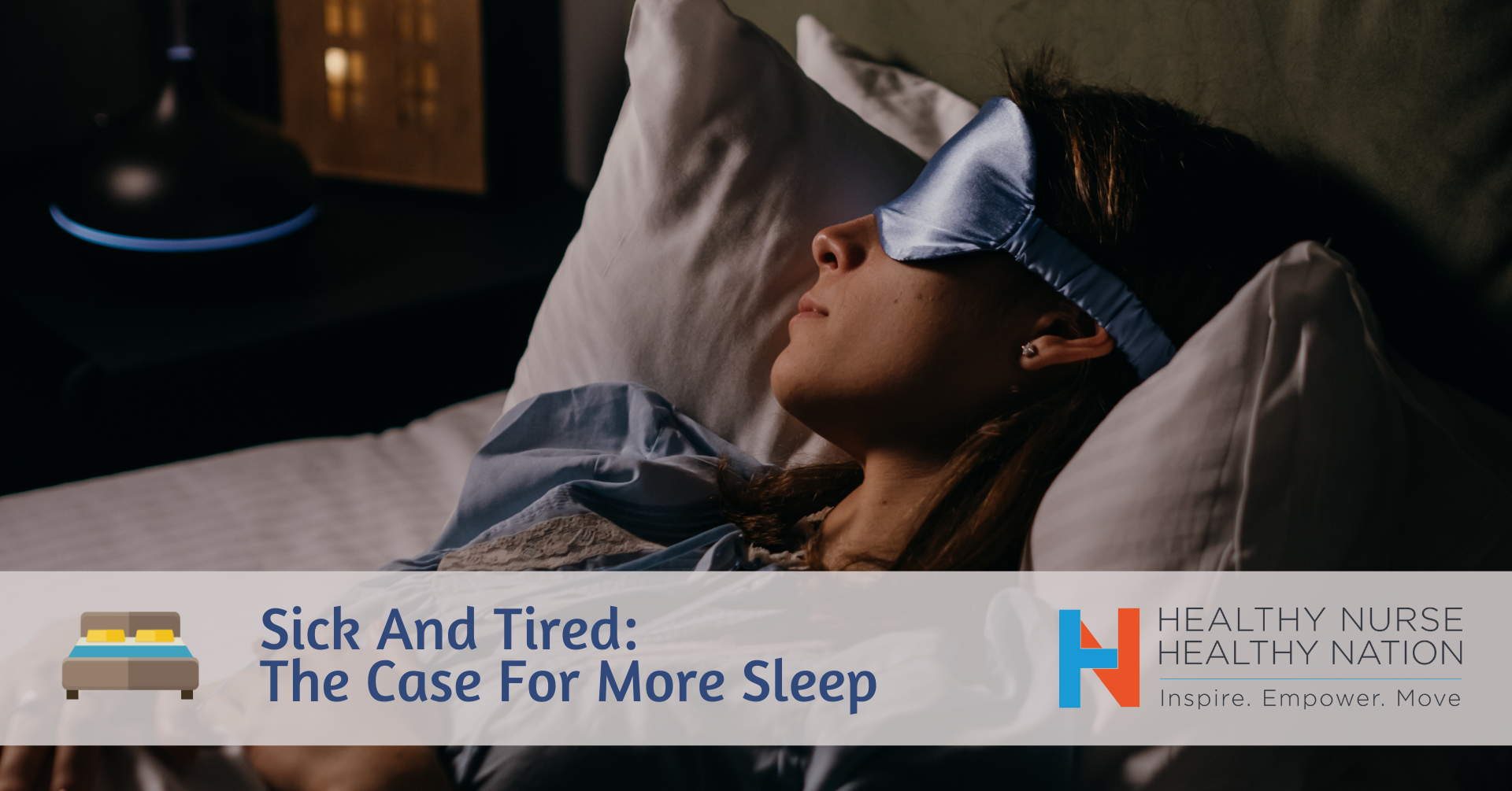Healthy Nurse, Healthy Nation™ Blog - Sick And Tired: The Case For More Sleep
Published
Less than a third of nurses get 7-9 hours of the recommended sleep time per night. Demanding schedules contribute challenges to achieving a good night’s sleep, but it's important to recognize why we should make the case for more sleep. Read this blog to understand why. (Editor's note: this blog was published in 2017, some of the statistics cited may be outdated).
Too many Americans are short on sleep, and nurses are no exception. The National Sleep Foundation recommends adults aim for seven to nine hours of quality sleep each night. Yet according to the American Nurses Association’s 2016 Health Risk Appraisal, less than a third of nurses log in that much shuteye.
On days they work as well as days off, nurses average approximately 6.5 hours of sleep each night. That’s not just below the recommended quota, it’s also lower than the national average.
Healthcare requires a 24/7 workforce, but that around-the-clock pace presents challenges to achieving a good night’s sleep:
- Many nurses work evening, night, or rotating shifts, which can interfere with sleep schedules. Those who work the night shift report getting one to four hours less sleep on work days.
- Sleep quantity isn’t the only concern. Nurses who work the night shift or rotating shifts often get poorer quality sleep than people who maintain a more conventional nightly sleep schedule.
- More than half of nurses regularly work shifts longer than 10 hours, and 41% work more than 40 hours per week. Sleep is often one of the first things to get short shrift in a too-busy schedule.
- Resting during working hours is nearly impossible for many nurses; 56% say they have to work through breaks just to complete their assigned workload.
Such a demanding schedule can take a toll on health and overall well-being. Chronic insufficient sleep has been linked to an alarming list of health problems, including:
- Cancer
- Obesity
- Mood disorders
- Type 2 diabetes
- Metabolic syndrome
- Injuries and accidents
- Cardiovascular disease
- Gastrointestinal problems
- Musculoskeletal disorders
- Adverse reproductive outcomes
Patient Care Suffers
Being tired isn’t just a problem for nurses’ health. It’s also a risk to their patients. One study found that 1 in 5 nurses struggle to stay awake while caring for a patient at least once a month.
Even when they’re not fighting to keep their eyes open, exhaustion can affect the skills and cognitive abilities nurses rely on to do their jobs. Fatigue is associated with a laundry list of performance deficits:
- Negative mood
- Reduced vigilance
- Reduced ability to learn
- Impaired decision making
- Poor communication skills
- Poor information processing
- Increased risk-taking behavior
- Reduced innovation and insight
- Impaired planning and execution
- Reduced short-term and working memory
In fact, sleep is so critical to human functioning that the American Nurses Association has issued a position statement on the topic. That statement attests that registered nurses and their employers have an ethical responsibility to consider the need for adequate rest when deciding whether to offer or accept work assignments.
Find this helpful? Consider sharing it with a friend by clicking on the social media icons on the left side of this page. Don't forget to tag us with #HealthyNurse. Find us on Facebook, Twitter, or Instagram.
 Have you joined the Healthy Nurse, Healthy Nation (HNHN) Grand Challenge yet? Join us today!
Have you joined the Healthy Nurse, Healthy Nation (HNHN) Grand Challenge yet? Join us today! Reviewed 12/7/22
Source List:
The American Nurses Association’s Health Risk Appraisal -- Exploratory Data Analysis, November 30, 2016
ANA Position Statement: Addressing Nurse Fatigue to Promote Safety and Health:
Joint Responsibilities of Registered Nurses and Employers to Reduce Risks, 2014
Updated source: ANA. (2021). Healthy nurse, healthy nation year four highlights 2020-2021. American Nurse, 16(10), 29-39.
Blog Rest
02/08/2017 9:09am CST



Post a Comment or Question
1. River of Inspiration. What and/or who inspired you today? In what way or how?
2. River of Challenge. What challenged you to leave your comfort zone? Did you accept the challenge?
3. River of Surprise. What “came out of the blue” today for you?
Staying aware of these mysteries of life can help you move in new directions.
4. River of Love. How or in what ways did love touch you today?
When I wake up, I am really ready for a fresh new day. This practice has been so uplifting and I look forward to going to bed, which is totally new.